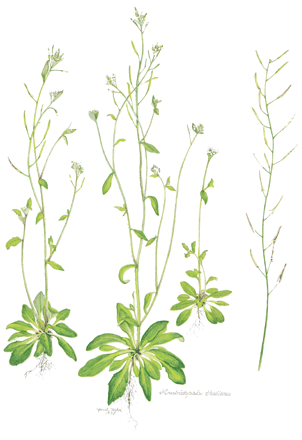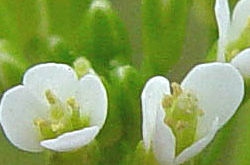 Arabidopsis thaliana is a small, herbaceous, annual mustard that is a widely-studied model system for plant molecular genetics, evolution and ecology. We are principally interested in using the natural diversity of ecophysiological traits in Arabidopsis to two general ends: identifying the genetic basis of ecophysiological response and understanding the evolutionary processes that shape these traits.
Arabidopsis thaliana is a small, herbaceous, annual mustard that is a widely-studied model system for plant molecular genetics, evolution and ecology. We are principally interested in using the natural diversity of ecophysiological traits in Arabidopsis to two general ends: identifying the genetic basis of ecophysiological response and understanding the evolutionary processes that shape these traits.
We aim to improve our understanding of plant function and stress tolerance by cloning genes that impact photosynthetic capacity, stomatal conductance, and transpiration efficiency or water-use efficiency. Traditional plant molecular biologists have approached this problem primarily using loss- or gain- of function mutants generated through a forward or reverse genetic approach. Our strategy focuses on exploring alleles that have arisen from natural mutational processes and have evolved by drift, selection, and recombination in natural populations. Ideally, we hope to clone genes that underlie local adaptation among A. thaliana populations which occur in diverse habitats around the globe. Our strategy relies on a combination of ecotype screens, quantitative trait locus (QTL) mapping, association mapping, and studies of gene expression. A brief description of each of these approaches is the accompanying sections.


